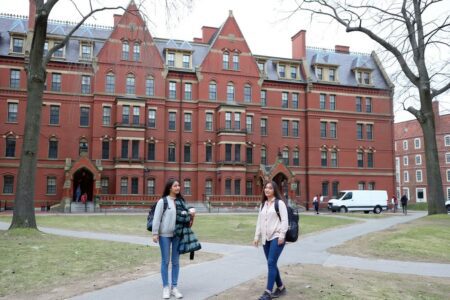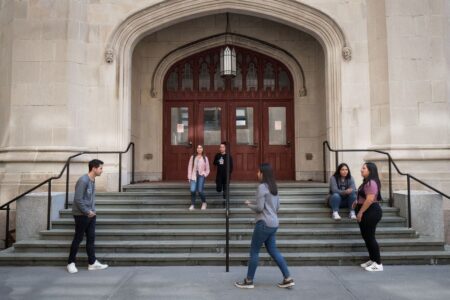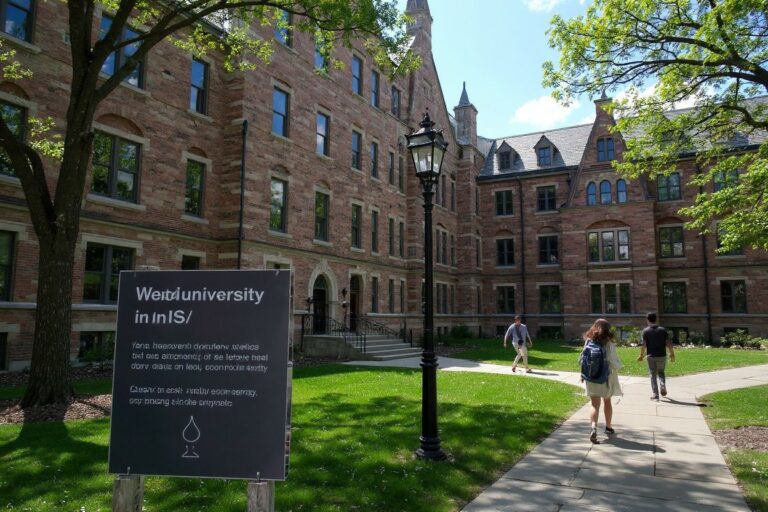
If you’re planning to study in the US, you’ve probably come across the term “need-based aid,” the type of financial aid that students can receive if they can establish concrete proof that they require financial assistance for their education.
What you might not be as familiar with, though, are “need-blind admissions.”
Need-blind universities aren’t about universities increasing their intake of blind students. Instead, these universities don’t consider students’ financial status in the admissions process.
For example, if you come from a family whose income is below a certain necessary amount to enrol into a university’s programmes, you can still submit your application to the school, and your finances won’t be taken into account.
This helps students from lower to middle-income families enjoy equal opportunities for quality education.
But why is this important?
As mentioned, it’s a big way to level an otherwise unequal playing field. It’s known that universities, especially prestigious ones, favour those who have the financial means to pay — and offer a little more — to schools. This means those from poorer families often struggle to get their foot in the door where opportunities lie beyond them.
And if you’re an international student whose country’s currency is weaker than the US dollar — whether that’s Singapore’s 73 cents equalling US$1 or the unstable and depreciating Nigerian naira where 0.00065 equals to US$1 — it’s an uphill climb either way.
Worse yet, not all need-blind universities (or universities with need-blind admissions) will meet an international student’s financial needs if they are accepted, but luckily enough, a handful do.

Students are encouraged to do some research before applying to need-blind universities as the competition can be stiff.
Need-blind universities in the US for international students
Bowdoin College
In July 2022, Bowdoin College, located in Maine, announced that it would include international students in its need-blind admissions policy.
“Now Bowdoin joins Harvard University, Princeton University, Massachusetts Institute of Technology, Yale University, Dartmouth College, and Amherst College in including all students, regardless of citizenship, under its need-blind admissions policy,” said the university in a press release.
The university’s international student admissions page highlights that Bowdoin will “work closely with you and your family to ensure your financial aid meets your need.”
The estimated cost of attendance at Bowdoin College for the 2024-2025 academic year is US$88,820. This figure accounts for tuition, housing, food, course materials, and more.
View this post on Instagram
Amherst College
Based in Massachusetts, Amherst College is “need-blind” in evaluating all its applicants — domestic, international, and undocumented.
“This means that our admission decision is based solely on your achievements, talents, and promise,” they write on their admissions page. “Your and your family’s financial situation is not considered — it has no bearing on whether we offer you admission.”
Amherst College is also committed to providing financial aid to meet the full difference between what Amherst costs and what you are able to contribute toward those costs. “Our financial aid meets your full calculated need — there is no gap or unmet need in your financial aid offer,” the university writes.
The estimated cost of attendance at Amherst College for the 2024-2025 academic year is US$91,290. This figure accounts for tuition, housing, meals, transportation, and more.
Princeton University
This New Jersey-based Ivy League private research university is a need-blind university for all applicants, including international students. Princeton University adds that financial aid is awarded solely based on need; there are no merit scholarships.
“There is no disadvantage in the admission process for financial aid applicants,” writes the university. “This ensures a continued and growing enrollment of a diverse group of students from all socioeconomic backgrounds. If offered admission, Princeton will meet 100% of your demonstrated financial need with grant aid.”
Tuition for the 2024-2025 academic year comes up to US$62,400. However, Princeton’s no-loan policy — which replaces student loans with grant aid that students do not pay back — has allowed 89% of recent seniors to graduate debt-free. For students who do choose to borrow loans, the average total indebtedness is about US$9,600.
Harvard University
If you’re Harvard-bound, you will not be disadvantaged in any way if you come from a lower-income family. The Massachusetts-based Ivy League has a need-blind application process for all students, including international students.
“Our goal is to bring the most promising students to Harvard — period,” writes the university. “We’ve created a financial aid programme to help ensure that admitted students can afford their Harvard education.”
The fees for the Harvard College — the university’s undergraduate community — for the 2024-2025 academic year is around US$82,866. This figure includes tuition, health services, housing, student services, and meals.
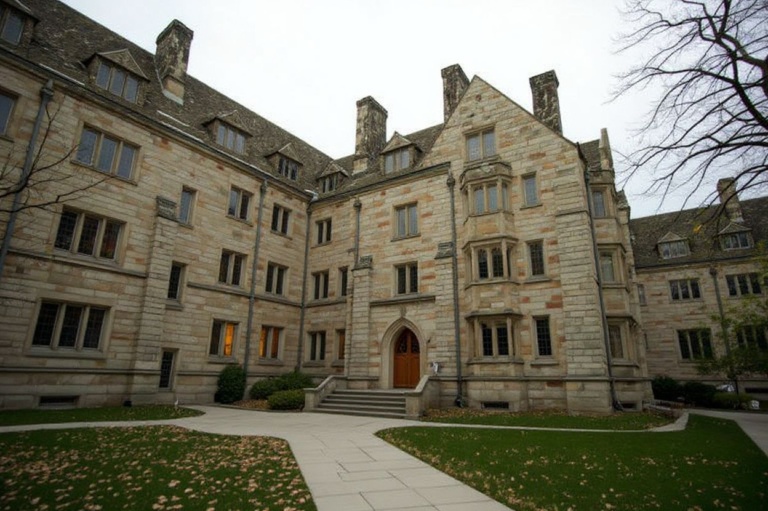 Another Ivy League on the need-blind universities list is Yale University.
Another Ivy League on the need-blind universities list is Yale University.
Yale University
Connecticut-based Ivy League Yale University claims to be the first private research university in America to establish need-blind admissions and need-based financial aid for all its applicants since forty years ago.
“Since then, making a Yale education affordable for every student admitted has been one of our core principles,” writes the university. “For undergraduates with financial need, our aid awards meet 100% of a family’s demonstrated need without using loans.”
The estimated cost of attendance for Yale undergraduates in the 2024-2025 academic year is around US$90,975. This takes into account tuition and fees, housing, food, course materials, and more.
Massachusetts Institute of Technology
Massachusetts Institute of Technology (MIT) is another Ivy League school with need-blind admissions.
“The Institute does not consider a student’s ability to pay for MIT during the admissions process,” writes the university. “Need has no bearing on admissions, and admissions criteria has no part in determining aid.”
The full price of an MIT education is US$85,960 for the 2024–2025 academic year. However, most students pay far less than that as the school offers full-need financial aid. This means that 100% of your demonstrated financial need for all four years of your undergraduate career is accounted for.
Dartmouth College
Over in New Hampshire, Dartmouth College is yet another Ivy League on the need-blind universities list for international students.
“Applications are reviewed and accepted based solely on a student’s qualifications, and not on their ability to pay,” writes the university. “Once the Admissions office has selected the students it intends to admit to Dartmouth, the Financial Aid Office determines each student’s need, and awards financial aid accordingly.
The cost of attending Dartmouth comes up to around US$91,312. This fee comprises of tuition, housing, meals, course materials, and more.
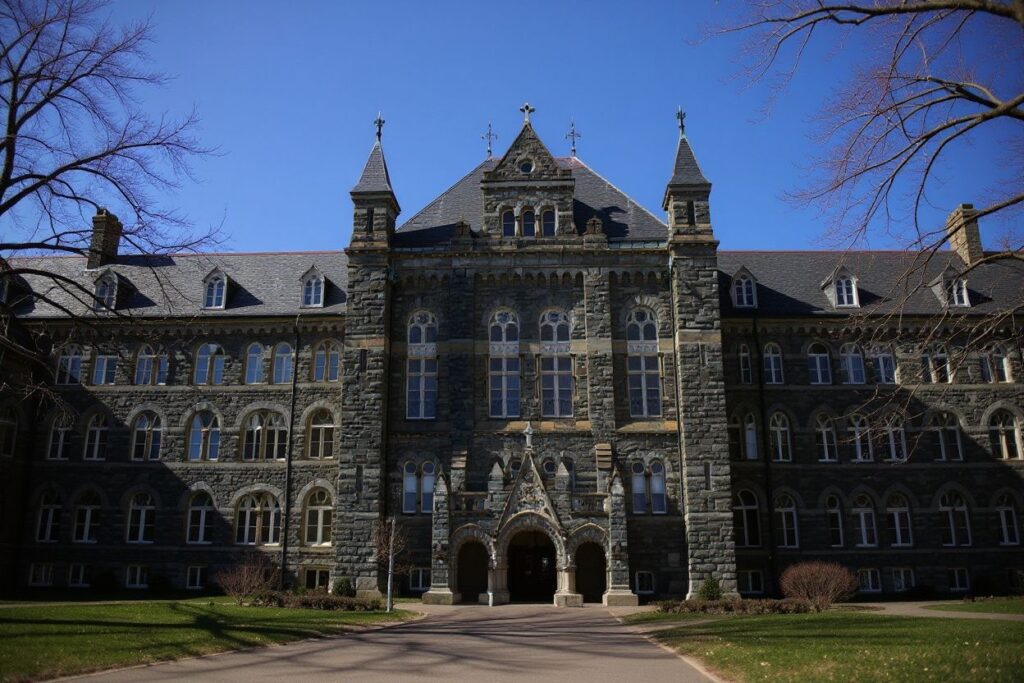 One of the need-blind universities in the US, Georgetown University, is located in none other than Washington, D.C.
One of the need-blind universities in the US, Georgetown University, is located in none other than Washington, D.C.
Georgetown University
International students who wish to study in the capital city of the US can make their way over to Washington, D.C.’s Georgetown University, where “plainly stated, our ‘need-blind’ admissions policy applies to everyone,” writes the university.
Here, international applicants follow the same application procedure and deadlines as US citizens. The university writes that “all candidates are reviewed without consideration of a student’s financial resources. Thus, it is not necessary to send a Statement of Finances with your application.”
The 2024-2025 undergraduate tuition rate is US$67,824, though the university adds that for the academic year 2023-2024, it dedicated a record US$257 million for financial aid for undergraduate and graduate students.
University of Notre Dame
Up at Indiana, the University of Notre Dame is another name on the list of need-blind universities for undergraduate international applicants.
“This means applicants will be evaluated for admission without considering the ability of students or parents to pay the educational costs associated with the University of Notre Dame,” writes the university.
Notre Dame also offers a limited number of merit scholarships to admitted first-year students. However, those who receive both the merit scholarship and need-based scholarship from the university are subject to a reduction or elimination of the need-based portion of the financial aid per federal regulations and institutional policy.
The total estimated cost of attending the university in the 2024-2025 academic year is US$86,125. This cost includes tuition, housing, transportation, meals, and more.
View this post on Instagram
Brown University
In 2024, Brown University announced that it aims to become a need-blind university for international students starting their undergraduate degrees in Fall 2025.
Need-blind admissions to Brown have been open to domestic students since 2003, but it only has a need-aware policy in place for its foreign applicants.
Grinnell College
Grinnell College is a top liberal arts institution in the US, coming in at #13 overall. Aside from its rankings, the college is also known for its need-blind admissions for US citizens and eligible noncitizens.
But Grinnell doesn’t stop there. The college has eliminated student loans in all need-based financial aid packages, replacing them with scholarships and grants for all eligible new and continuing students.
This is part of their commitment to meeting 100% of students’ financial needs, ensuring financial accessibility and allowing them to graduate with less debt.
Disclaimer: This article was last updated on November 18, 2025.








